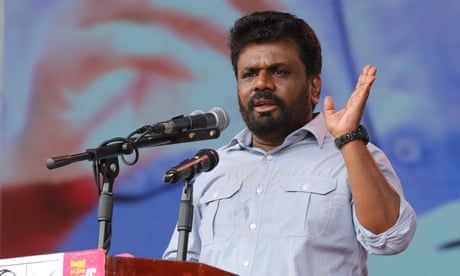
Anura Kumara Dissanayake wants a better deal from the IMF to reduce suffering during the country’s punishing debt crisis
Sri Lanka is at a historic juncture. Faced with its worst economic crisis since the Great Depression and having defaulted on its external debt for the first time, the country recently saw unprecedented protests demanding systemic change. The former president Gotabaya Rajapaksa was literally chased away in 2022, as protesters stormed his residence and swam in his pool. The political parties and their offshoots that have ruled the country since independence are unravelling. Take Anura Kumara Dissanayake. He polled just 3.8% of the vote during the previous presidential election in 2019. This week, he was sworn in as president.
The new president belongs to the Janatha Vimukthi Peramuna (JVP) party and leads the new centre-left National People’s Power (NPP) coalition. The JVP engaged in two major insurrections in the early 1970s and late 1980s, which resulted in the loss of tens of thousands of lives – mass violence was committed by both the JVP and the state. But the party has come a long way from its mix of revolutionary Marxist-Leninism and Sinhala ethno-nationalism, having moved into the centrist mainstream. From its roots in the rural south of the country, the party remoulded its base in the suburbs and small towns and even wooed the middle classes by taking up the issue of corruption. Its electoral capture of state power was contingent on the unprecedented economic crisis, as it waited patiently for the political winds to turn.
Continue reading...